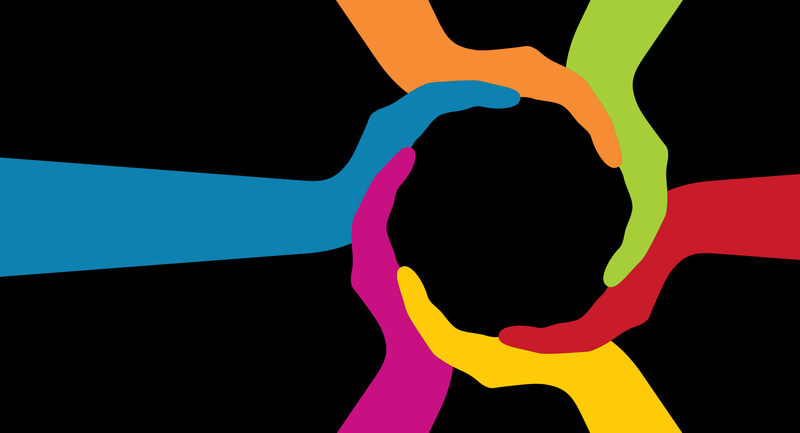Sharing My Own Stories
I'm involved in the community, so after participating in an event or volunteer activity, I share my experiences with my students. Encouraging student action through my own actions is a powerful and subtle way to get students thinking about how they want to be involved, and inspires them to go home and ask their caregivers to attend future events in the community. Those experiences can range from family fitness events to helping out in community centers such as the Food Bank. The point is to get students and families out in the community together … and then share those experiences with others.
—Tamera Musiowsky-Borneman, teacher, ISS International School Singapore, Singapore
Empowering Students Who Live in Poverty
Watch Abdul Wright, 2017 Minnesota Teacher of the Year and 8th grade language arts teacher in Minneapolis, describe the importance of empowering students who live in poverty.
<!--bcove content: https://bcove.video/2h2tziS ;; https://players.brightcove.net/10228042001/default_default/index.html?videoId=5575126522001 tocblurb link: http://www.ascd.org/publications/educational-leadership/nov17/vol75/num03/Using-Democracy-to-Shape-Curriculum.aspx#el1117fisherfrey --> <!--<iframe src="https://players.brightcove.net/10228042001/default_default/index.html?videoId=5575126522001" style="position: absolute; top: 0px; right: 0px; bottom: 0px; left: 0px; width: 100%; height: 100%;"></iframe>-->
Partnering with City Government
Seniors at Keller High School are working in partnership with the City of Keller in our inaugural KHS Citizen's Academy. Students will work with city officials to learn about the inner workings of local government, take various field trips to city facilities, and even work with a budget. Academy members will then present a new initiative to the city council and school officials to address a need in the community. Our goal is to create a greater level of awareness and civic participation among our graduating seniors.
—Suzanne McGahey, learning coordinator of social studies, Keller Independent School District, Keller, Texas
Serving the Community's IT Needs
One of the Heritage High School Governor's STEM Academy's projects is the Virginia Student Training and Refurbishment Program (Virginia STAR), which allows students to apply technical skills learned in the classroom to a service learning project that benefits members of our local community. Virginia STAR is a state-wide program that teaches students to refurbish surplus computer hardware donated by government agencies and private companies. The refurbished computers are then donated to families and community organizations. Through this program our students have been able to provide over 50 computers to high school students and non-profit agencies.
The Virginia STAR project is the culminating activity for students participating in the Advanced Students Supporting Innovative Systematic Technology (ASSIST) program. These students are heavily involved in the technology support and integration initiatives at Heritage High School and engage in our community by offering technical support to students, assisting with network setup, and supporting area churches and afterschool programs. The Virginia STAR and ASSIST Student-Led Help Desk initiatives have enabled students to gain career readiness and citizenship skills through working with their local community.
—Toinette Outland, career & technical education instructional supervisor, Newport News Public Schools, Newport News, Virginia
Engaging in Advocacy
The Residency in Secondary Education (RiSE) program at California State University Chico prepares teachers to work in rural communities in northern California. This past summer the program was invited to participate in an advocacy day at the State Capital in Sacramento. These future teachers researched legislation or topics that they felt personally passionate about and impacted youth they would teach in the north state, such as immigration, healthy food access, and food insecurity. They prepared elevator speeches on their topic to share with congressional staffers. On June 27, the RiSE students joined other local advocates on a bus trip to Sacramento where, in groups of four, they visited the offices of elected officials to share their ideas. Although initially nervous and intimidated about meeting state-level politicians, by the end of the day, every student felt experienced, empowered, and better educated. These future teachers now have the experience of using their voice at the state level and can pass this confidence on to their own students.
—Ann Schulte, professor of education, California State University Chico, Chico, California
Creating a Chain of Giving
Giving back through service to the community is a core value that takes personal example to become rooted in a student's fabric of being. As principal, I encourage students to participate in service learning opportunities by bring those opportunities into the school building. During holiday seasons, a benefactor donates dinner meals to families in need with the caveat of paying it forward to others in a meaningful way of their choosing. Student leadership encourages their peers to serve at area community food banks, and these students sign up other students for this and other giving events. Posted service activities are announced weekly, and quarterly awards ceremonies include students that have achieved notable hours of service to others. These are just a few ways we set the example of the importance of service to others.
—Edward Owusu, principal, Clarksburg High School, Clarksburg, Maryland
Solving Community Problems
Whenever I meet a potential new community partner, I ask them, "What problems are you trying to solve?" We then discuss how students might help solve their problem. This approach helps students see how they can genuinely make a difference in the local community and brings Problem-Based Learning to life.
—Meghan Raftery, school/community partnerships coordinator, Virginia Beach City Public Schools, Virginia Beach, Virginia
See upcoming questions and submit your own response at www.ascd.org/tellmeabout.







